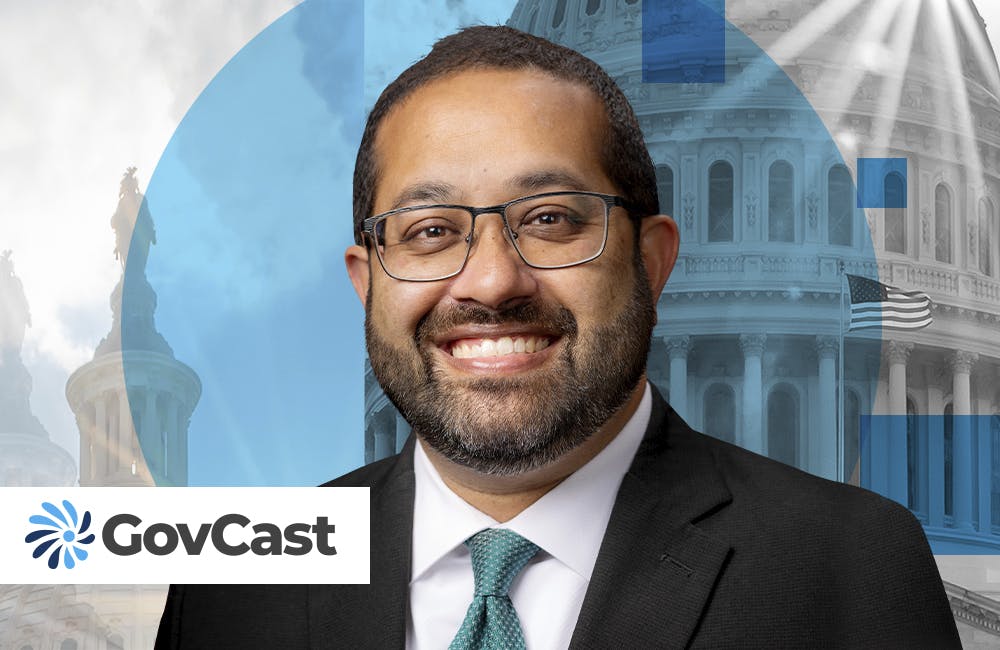Exploring Impacts of AI on Public Administration
A new National Academy of Public Administration book analyzes the intersection of the technology on public administration.

One of the challenges of implementing AI is trying to understand its impacts, especially at the federal level, so one nonprofit recently sought to better inform federal stakeholders and their agencies about the technology’s impacts on public administration.
In 2018, the National Academy of Public Administration, a congressionally chartered nonpartisan and nonprofit organization, formed the Artificial Intelligence Working Group to assess the public administration implications of adopting AI technologies.
NAPA’s AI research mirrored the recent work of federal leaders, including legislators, who have committed to intensifying the government’s AI push. The Feb. 11 release of the president’s Executive Order on Maintaining Leadership in Artificial Intelligence reiterated the importance of the kind of research NAPA undertook to provide guidance for public administrators and other federal stakeholders. NAPA’s AI Working Group included that executive order in the publication of its findings.
NAPA’s Standing Panel on Technology Leadership’s Working Group on Artificial Intelligence and Robotics and the Impact on Public Administration, composed of industry, nonprofit and academic technology and public policy experts, released their findings Thursday in a book, “AI and Its Impact on Public Administration.”
NAPA President and CEO Terry Gerton, appearing soon on GovCast, emphasized the book’s value in guiding federal stakeholders and their agencies through the changing landscape at the intersection of public administration and AI.
“Artificial Intelligence is one of the biggest innovations — and challenges — that we as a society will face in the years to come. While AI and robotics are very exciting, they have the potential to impact the government and public administration in ways that we are still trying to understand,” Gerton said in a press release Thursday.
The book is comprised of three chapters that reflect the three working groups that emerged during NAPA’s research.
The first chapter after the executive order on AI, “Artificial Intelligence and the Future of Work,” discusses the impact of AI on the workforce, including such topics as technological disruption, job loss and creation and practical recommendations for defining the role of AI within an organization or agency and focusing on collaboration, both between human stakeholders and between human and machine “workers.”
The next chapter, “A Public Administrator’s Practical Guide to Ethics and Artificial Intelligence,” examines the convergence of AI, ethics and public administration, including ethical issues of privacy, anonymity, bias and discrimination, manipulating human autonomy and surveillance.
The last chapter, “Artificial Intelligence and the Teaching of Public Policy and Administration,” explores how AI and information technologies generally are being integrated and how they can be further integrated, into public administration curricula and how public administration academics and administrators must emphasize technologies like AI that will dramatically impact public administration in the near future.
This is a carousel with manually rotating slides. Use Next and Previous buttons to navigate or jump to a slide with the slide dots
-

DOD Has a New Cyber Resiliency Assessment Program
Defense officials tout the continuous assessment feature and scalability of the new program amid increased cyber threats.
5m read -

Transitioning Systems for Modern Agency Missions
IT modernization is a constant process necessary for improving customer service, mission delivery and collaboration.
40m watch -

Cyber Resilience and Recovery Amid Evolving Cyber Threats
Data durability is a key aspect of NIST’s cybersecurity framework for public and private organizations.
21m listen -

How Tech Enables Environmental Justice at EPA
The agency wants to eliminate bias and establish new tech standards to reduce greenhouse gas emissions.
39m listen







